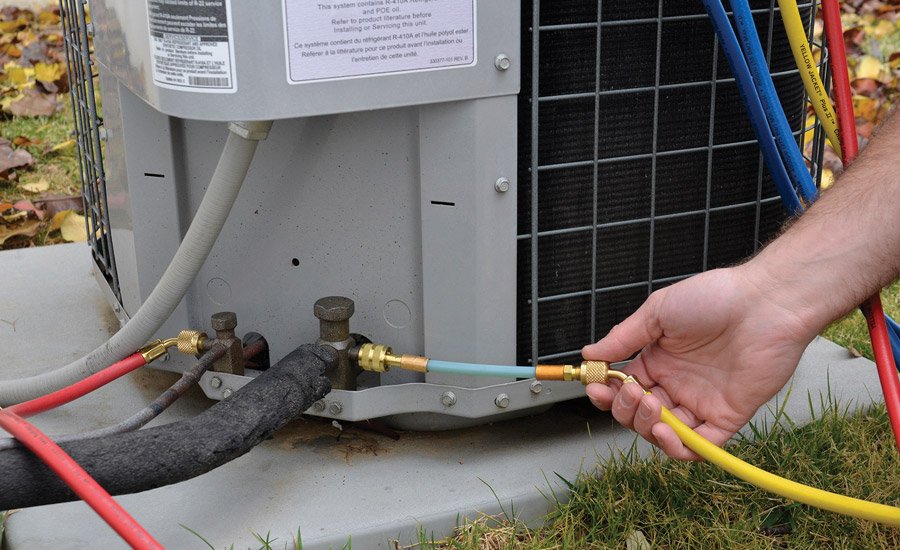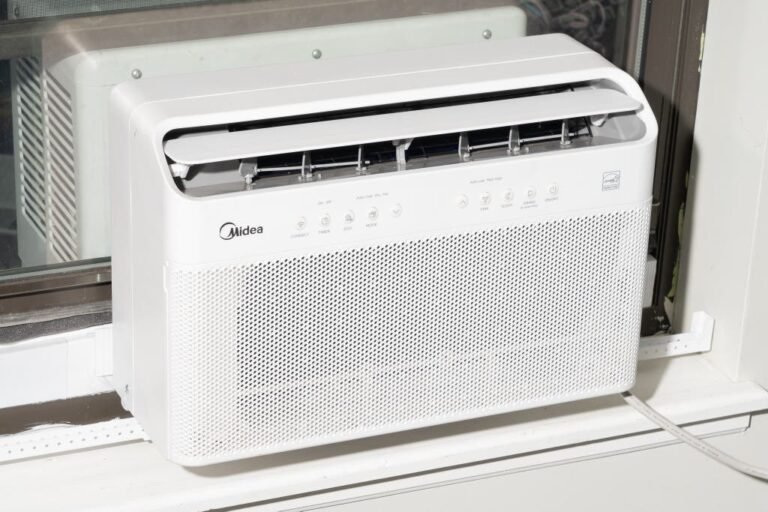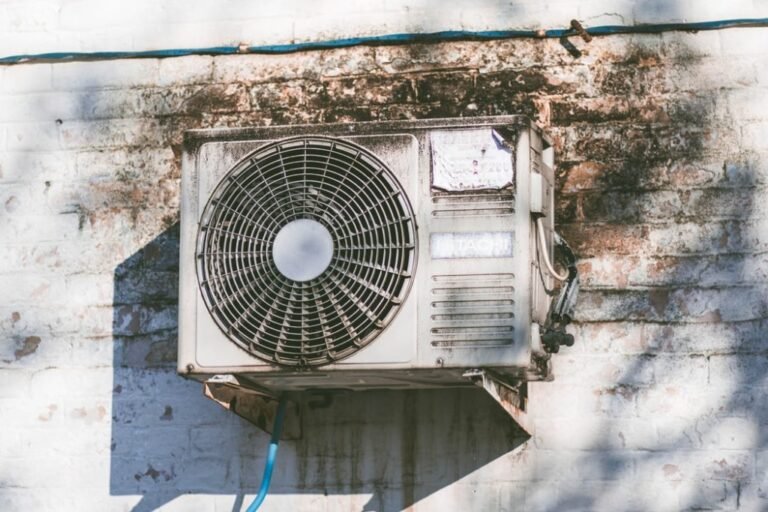Can An Air Conditioner Have Too Much Freon? Avoid These Harmful Effects
An air conditioner can have too much Freon, which can lead to subcooling and extremely cold temperatures that the unit is not designed to handle. Excess refrigerant can collect inside the compressor and cause damage to the system’s efficiency, affecting cooling in the house and potentially harming the compressor.
Harmful Effects Of Overcharged Air Conditioners
Excess refrigerant in an overcharged air conditioner can have harmful effects. When there is too much refrigerant, it can collect inside the compressor and cause subcooling, leading to extremely cold temperatures. These temperatures can reach sub-zero levels, which air conditioners are not designed to handle. This can put strain on the system and may cause issues such as irregular pressures, freezing of the suction line, and warm discharge air. Overcharging an air conditioner with freon can also result in symptoms like high-head pressure, clogged condenser coils, and a compressor struggling with audible gurgling or whining sounds. It’s important to ensure that an air conditioner is charged with the correct amount of refrigerant to avoid these harmful effects.
Causes And Symptoms Of Overcharged Ac Systems
Overcharging an air conditioner system with too much Freon can lead to various issues. One of the reasons why people overcharge a system is due to the audible gurgling or whining sound it produces. This is a common symptom of an overcharged AC. Additionally, overcharging can cause skyrocketing system pressures, which can further damage the system. Some symptoms of an overcharged AC include warm discharge air, irregular pressures, and freezing of the suction line. It is important to note that overcharging the system can be detrimental to the AC compressor. Excess refrigerant collects inside the compressor and causes subcooling, resulting in extremely cold temperatures that can reach sub-zero levels. Air conditioners are not designed to handle sub-zero temperatures, making overcharging a dangerous practice.
Troubleshooting And Prevention Of Refrigerant Overcharge
|
When it comes to troubleshooting and prevention of refrigerant overcharge in an air conditioner, there are a few key factors to consider:
Overcharging an air conditioner with too much freon can have negative consequences. Excess refrigerant can collect inside the compressor and cause subcooling, resulting in extremely cold temperatures that can reach sub-zero levels. Air conditioners are not designed to handle sub-zero temperatures, which can lead to compressor damage. Therefore, it is crucial to ensure proper refrigerant levels and regular maintenance to avoid these issues and maintain optimal performance of an air conditioner. |
Tips To Avoid Refrigerant Overcharge In Hvac Systems
Having too much Freon in an air conditioner can cause various issues and potential damage to the HVAC system. To avoid refrigerant overcharge in HVAC systems, it’s essential to follow a few tips.
- Proper refrigerant charge calculation: HVAC technicians should accurately calculate the appropriate amount of Freon needed for an air conditioner.
- Regular maintenance and inspections: Regularly inspecting the HVAC system helps identify any refrigerant leakage or overcharging issues.
- Training for HVAC technicians: Proper training ensures that HVAC technicians have the necessary knowledge and skills to handle refrigerant charging correctly.
By following these tips, you can prevent overcharging and maintain the optimal functioning of your HVAC system.
Importance Of Correct Refrigerant Levels In Air Conditioners
- Importance of Correct Refrigerant Levels in Air Conditioners:
Having the correct refrigerant levels in your air conditioner is crucial for optimal cooling performance, energy efficiency, cost savings, and prolonged lifespan of the AC equipment. If your air conditioner has too much freon, it can lead to various issues.
- Optimal cooling performance: When an air conditioner is overcharged with freon, it can cause the system to work harder than necessary. This can result in poor cooling performance and uneven temperature distribution in your space.
- Energy efficiency and cost savings: An overcharged air conditioner consumes more energy than required, leading to higher energy bills. By maintaining the correct refrigerant levels, you can ensure optimal energy efficiency and save on utility costs.
- Prolonged lifespan of AC equipment: Excess freon can put additional strain on the compressor and other components of the air conditioner, potentially reducing their lifespan. It is important to have a professional HVAC technician check and adjust the refrigerant levels regularly to avoid these problems.

Credit: oakmountainglass.com
Frequently Asked Questions On Can An Air Conditioner Have Too Much Freon
How Do I Know If My Ac Has Too Much Freon?
If your AC has too much freon, you may notice odd noises, warm air, irregular pressure, or a freezing suction line. It can also cause damage to the AC compressor. Excess refrigerant can collect inside the compressor and cause subcooling, resulting in extremely cold temperatures.
ACs are not designed to handle sub-zero temperatures. Having too much refrigerant can harm the system’s efficiency and affect cooling in the house.
What Happens If Your Ac Has Too Much Freon?
When there is too much freon in your AC, it can cause problems such as irregular pressures, freezing of the suction line, and warm discharge air. Excess refrigerant can collect inside the compressor and cause subcooling, resulting in extremely cold temperatures that the AC is not designed to handle.
It is important to regulate the amount of freon in your AC to avoid damaging the compressor.
What Does An Overcharged Ac Sound Like?
An overcharged AC may make gurgling or whining sounds due to the A/C compressor struggling. It can also cause high-side system pressures to rise. This can damage the compressor and affect the cooling efficiency of the system.
How Much Freon Does A Normal Ac Unit Hold?
A normal AC unit holds a specific amount of freon, which varies depending on the size and model of the unit. The proper amount of freon should be determined by a professional technician to ensure optimal performance and prevent damage to the unit.
Can An Air Conditioner Have Too Much Freon?
No, air conditioners cannot have too much freon as it can lead to various issues like subcooling and extremely cold temperatures that can damage the compressor.
What Happens If Your Ac Has Too Much Freon?
If your air conditioner has too much freon, it can cause subcooling, resulting in extremely cold temperatures that can reach sub-zero levels. This can potentially damage the compressor as air conditioners are not designed to handle such low temperatures.
What Does An Overcharged Ac Sound Like?
An overcharged AC can cause the compressor to struggle, resulting in audible gurgling or whining sounds. The high-side system pressures may also skyrocket due to overcharging.
How Much Freon Does A Normal Ac Unit Hold?
A normal AC unit typically holds a specific amount of freon depending on its capacity, which can vary. It is best to consult the manufacturer’s specifications or an HVAC professional to determine the correct amount for your specific unit.
Conclusion
Having too much refrigerant in an air conditioner can cause various issues. Symptoms such as irregular pressures, freezing of suction lines, and warm discharge air may indicate an overcharged system. Excess refrigerant can lead to sub-zero temperatures, which can damage the compressor and affect the cooling efficiency of the unit.
It is important to regulate superheat and prevent overcharging to maintain the optimal performance of an air conditioner.







